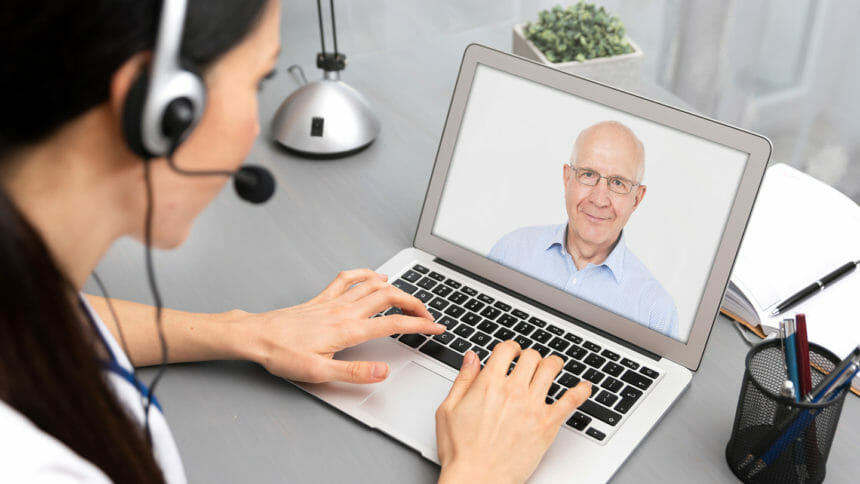
Telehealth has expanded access to healthcare for millions of Americans during the COVID-19 pandemic; now experts say it could do the same for hearing health.
The Acoustical Society of America published a new report promoting the use of telehealth to help diagnose and treat hearing loss, especially for those in rural areas who lack access to hearing specialists. The report said virtual audiology assessment would allow patients to access care in their home or at a local clinic from a specialist hundreds of miles away. The hearing tests could be administered through wireless headsets controlled by a mobile phone or laptop.
“Digital health technology is versatile and, in many ways, can meet the patient where they are,” study co-author Samantha Kleindienst Robler from the University of Arkansas for Medical Sciences said in a statement. “A real strength is that it can help take patient care to the next level by moving from an in-person, visit-centric approach to a person-centric approach that better supports a person’s life and their needs.”
Robler and researchers from San Diego State University and Kent State University are currently scaling up audiological studies they conducted in rural areas in Alaska. Their goal is to close the gap in hearing disparities with large, collaborative research spanning from device development to implementation.
Age-related hearing loss affects more than a third of adults over the age of 65, according to Johns Hopkins Medicine. It occurs most often in the inner ear and can be caused by continuous exposure to loud noise, aging, various health conditions or loss of hair cells in the inner ear which act as sensory receptors.
Hearing loss has been linked to increased risk of dementia. Studies have found that community-dwelling older adults who have demonstrated hearing loss are associated with a 30% to 40% rate of accelerated cognitive decline than those with good hearing.



